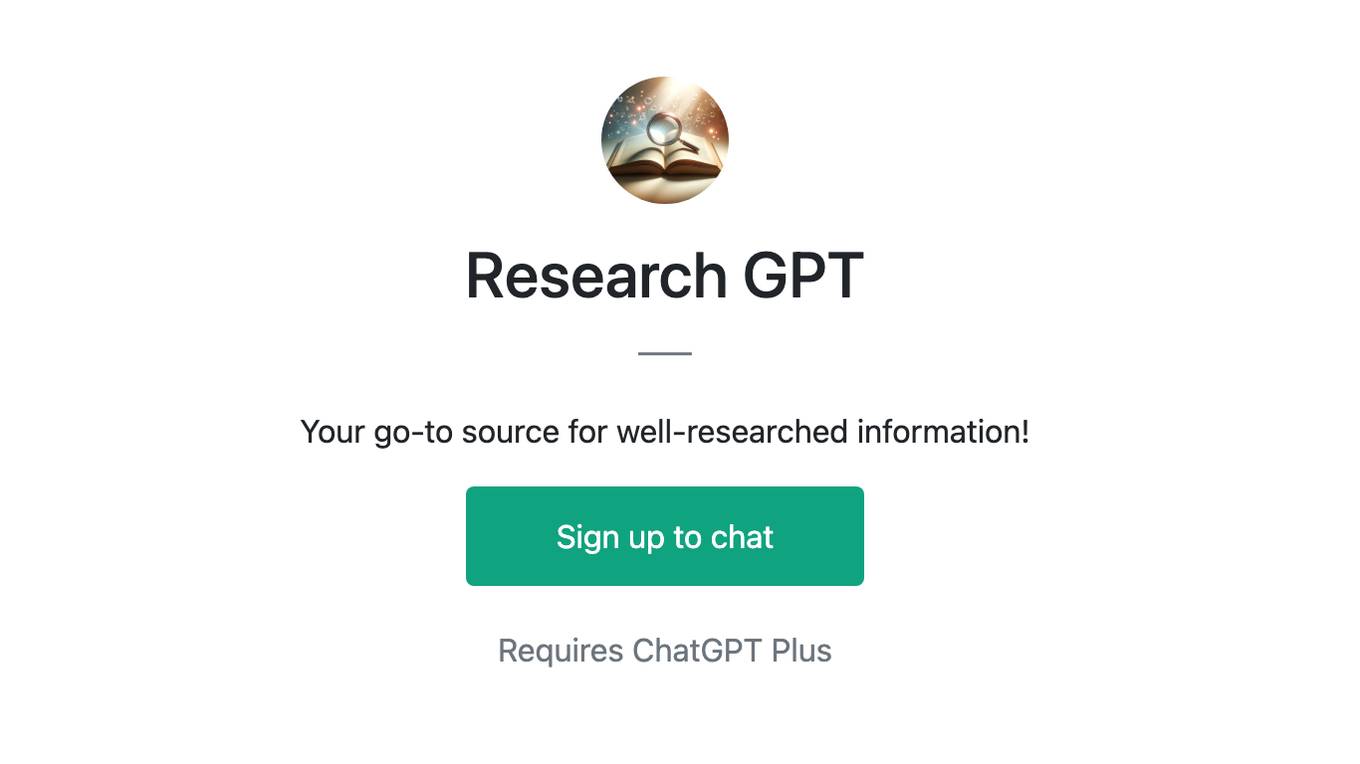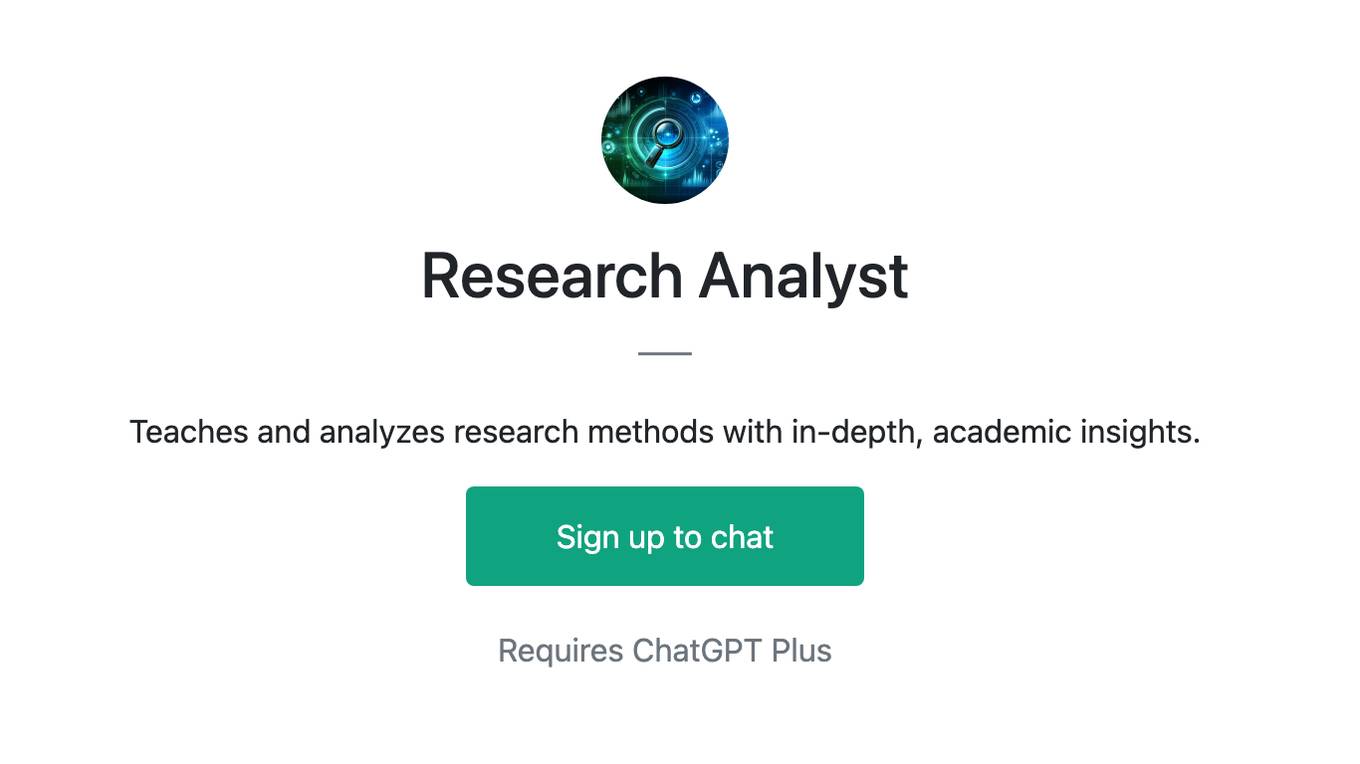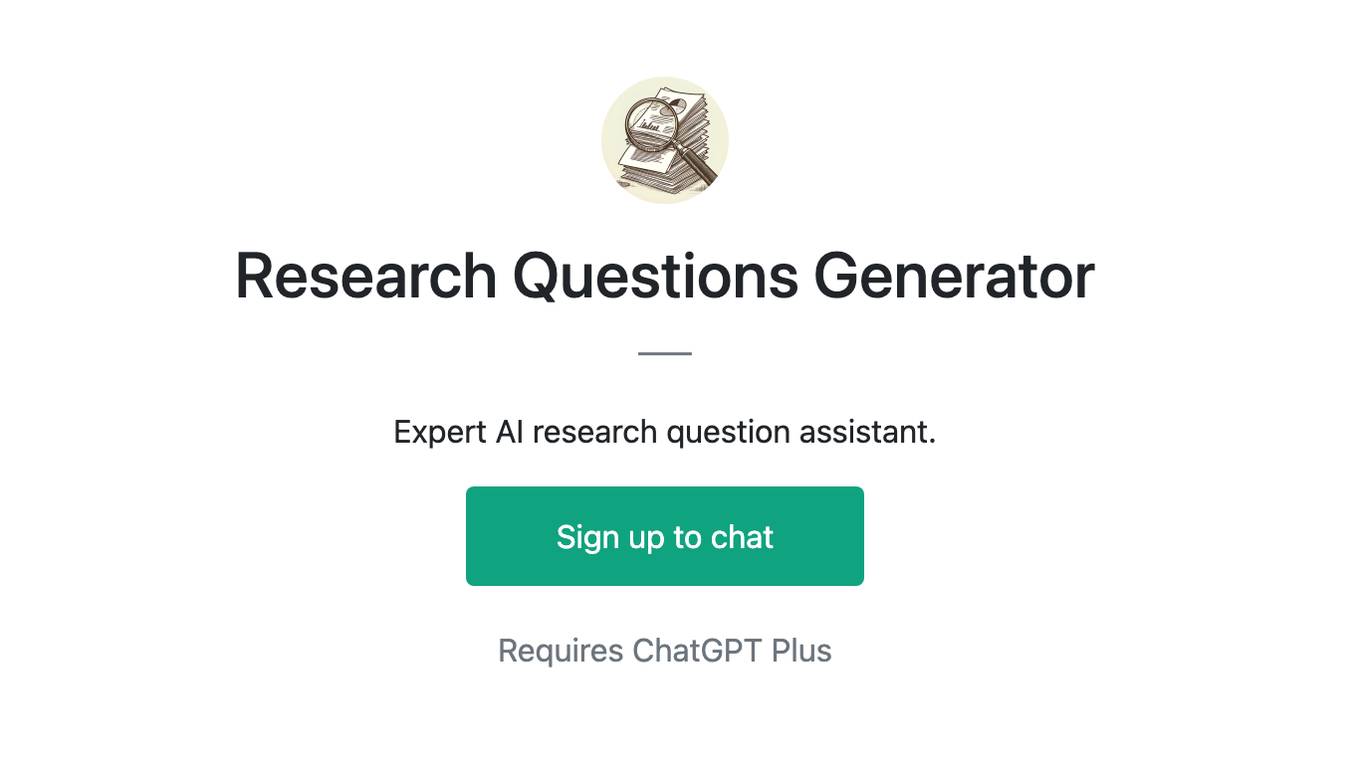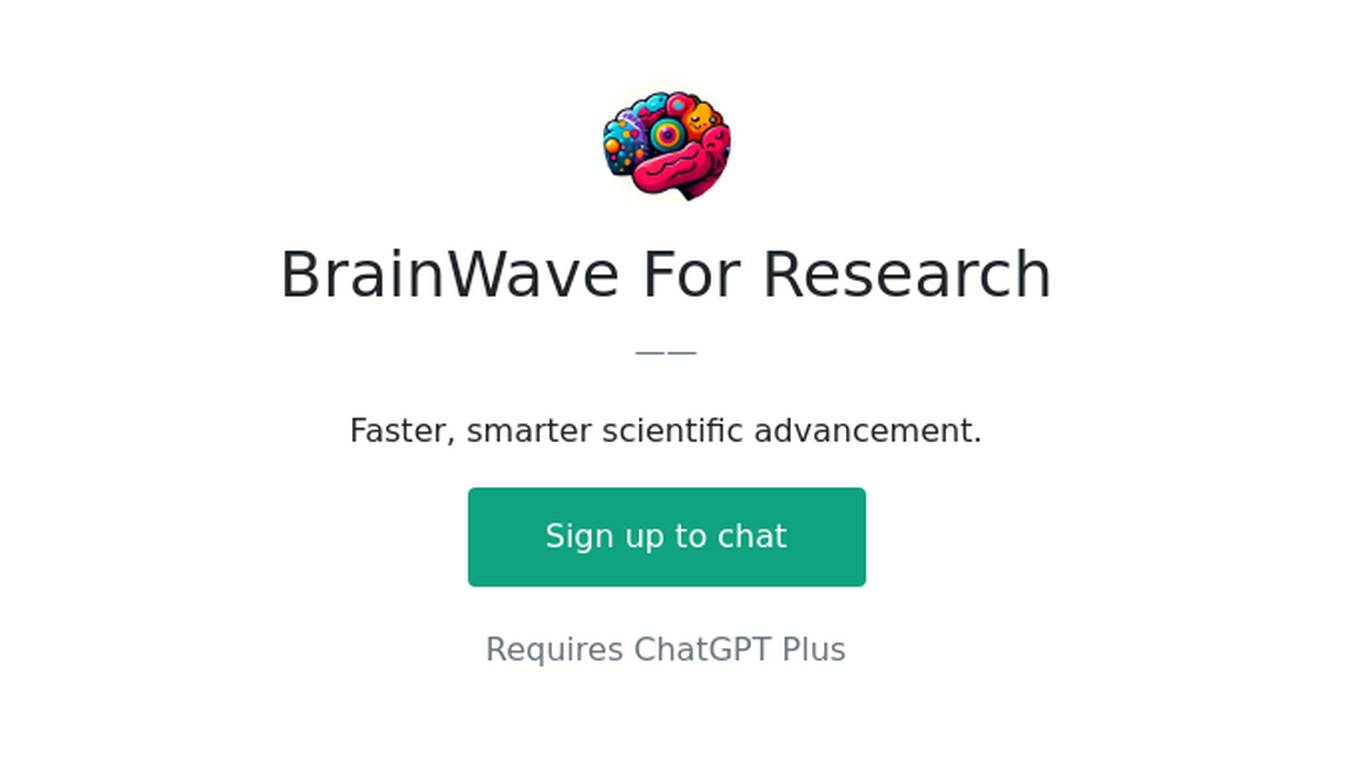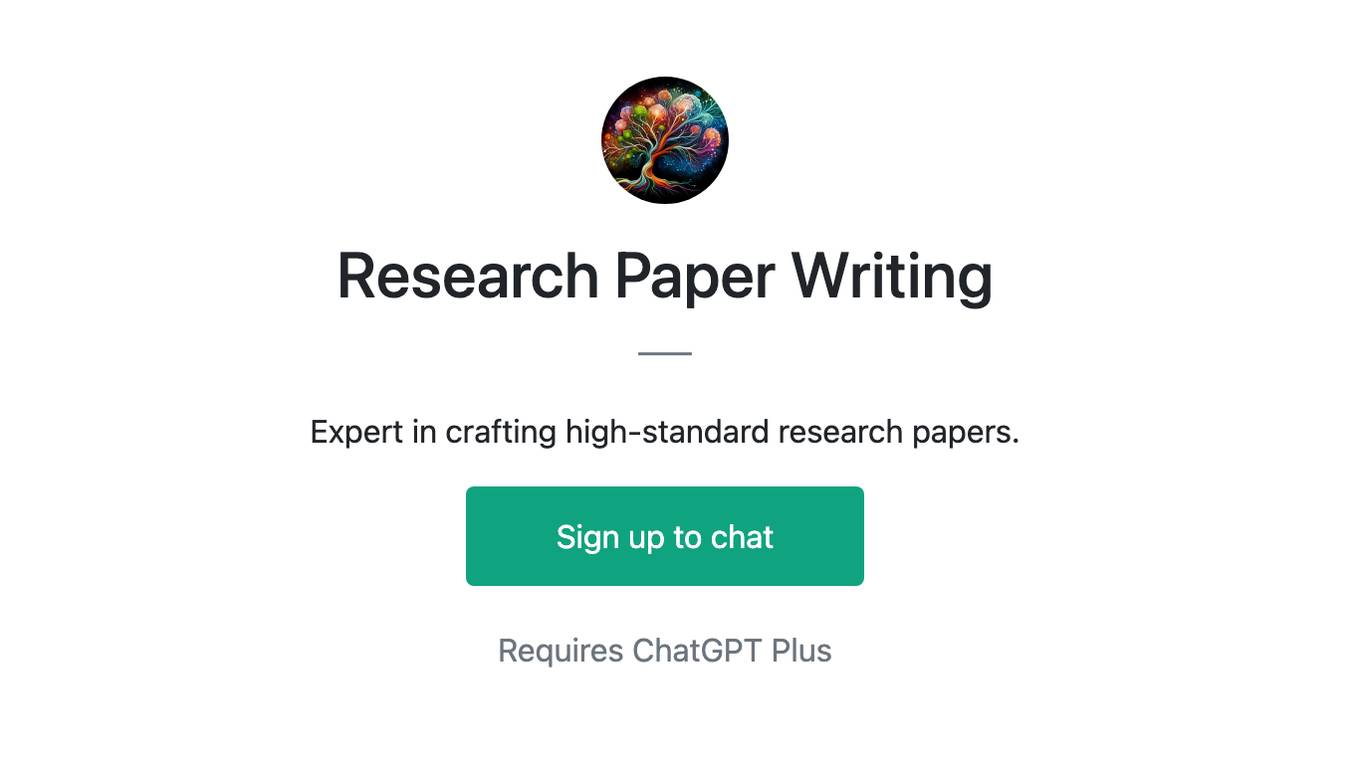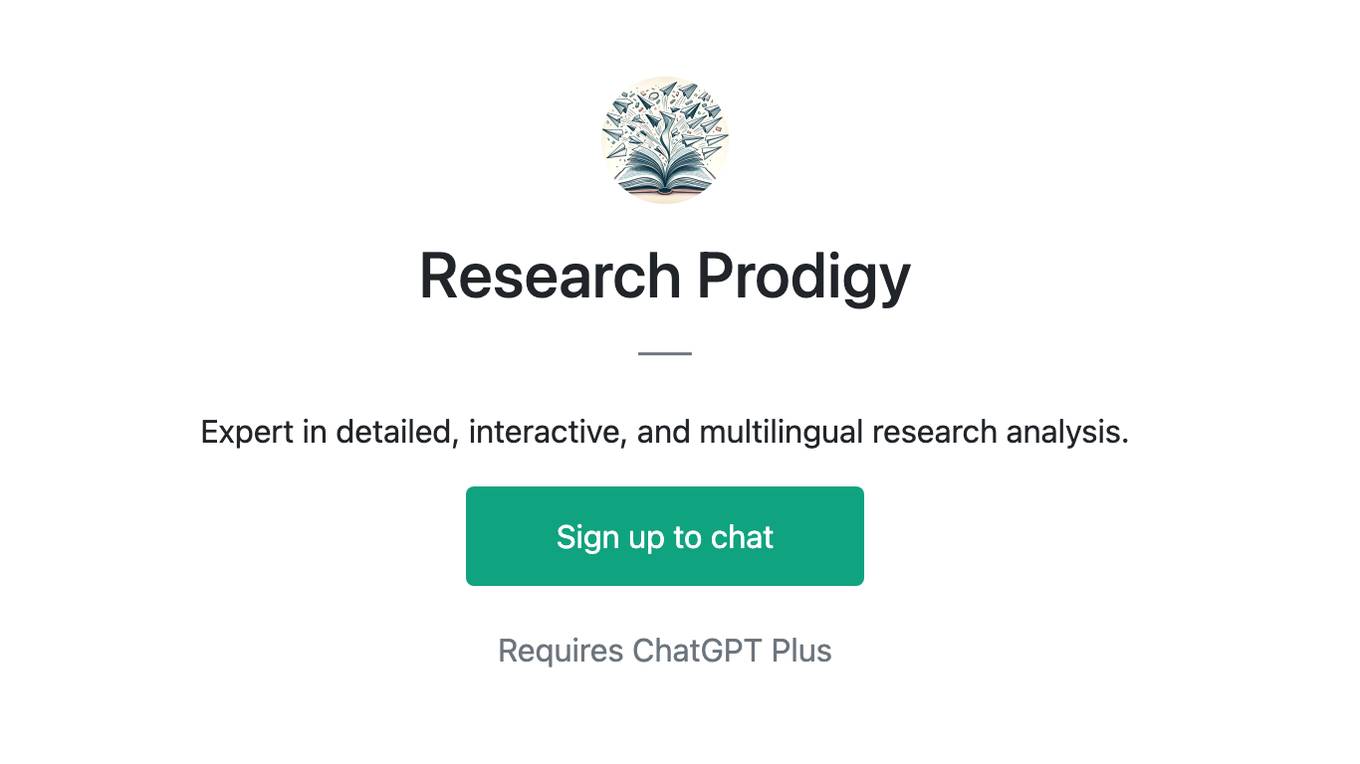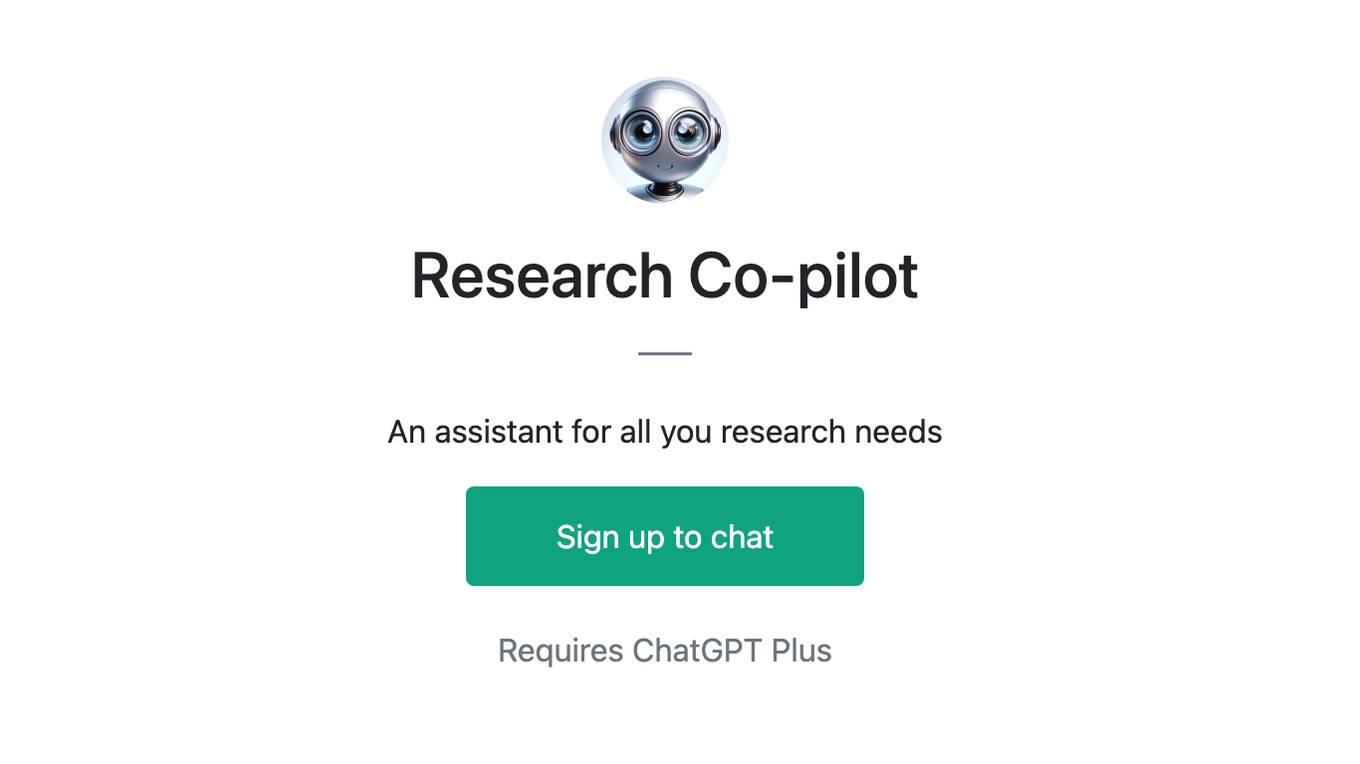Best AI tools for< Research Vendors >
20 - AI tool Sites

CloudEagle.ai
CloudEagle.ai is a modern SaaS procurement and management platform that offers AI/ML capabilities. It helps optimize SaaS stacks, manage contracts, streamline procurement workflows, and ensure cost savings by identifying unused licenses. The platform also assists in vendor research, renewal management, and automating provisioning processes. CloudEagle.ai is recognized for its AI/ML capabilities in the 2024 Gartner Magic Quadrant.

Censinet
Censinet is a purpose-built AI-powered solution designed to reduce risk in the healthcare industry. It offers a comprehensive platform to address various risk factors, including third-party vendors, patient data, medical devices, and supply chain cybersecurity. The flagship offering, Censinet RiskOps, facilitates secure data sharing and collaboration among healthcare delivery organizations and vendors. With deep expertise in healthcare and cybersecurity, Censinet aims to transform cybersecurity and risk management in the healthcare sector.
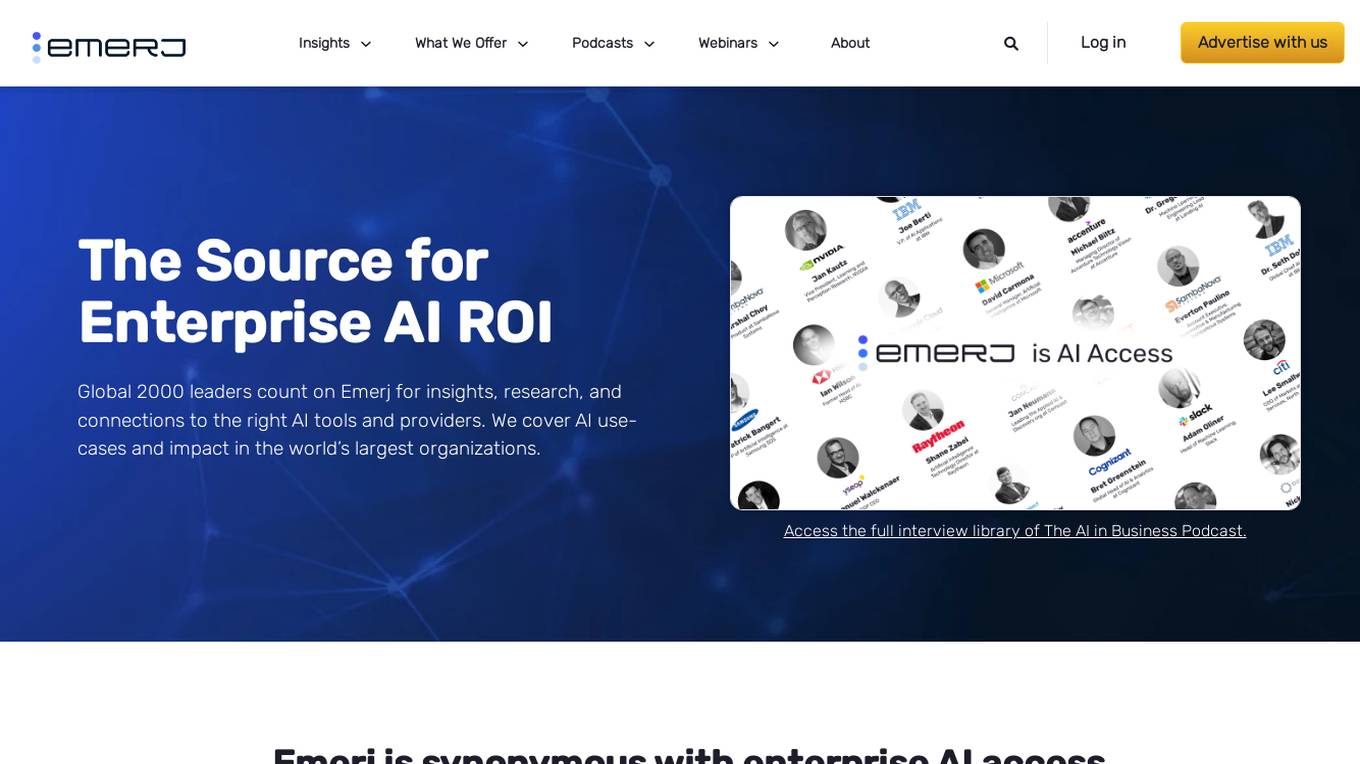
Emerj
Emerj is a leading provider of enterprise AI insights, research, and connections to the right AI tools and providers. We cover AI use-cases and impact in the world’s largest organizations. Our mission is to help businesses understand and implement AI to achieve their business goals.
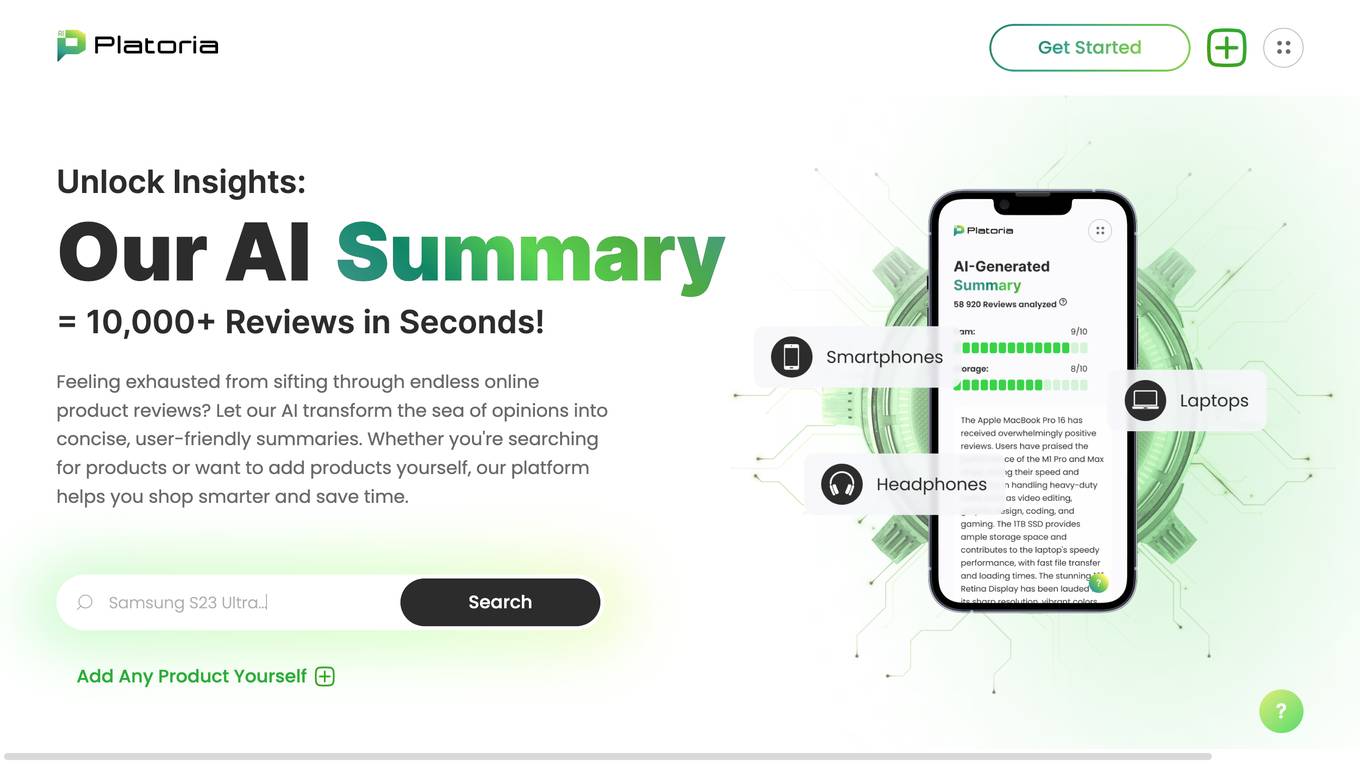
Platoria
Platoria is an AI application that provides AI review summaries for products based on thousands of reviews from vendors worldwide. It condenses reviews into easily digestible summaries, offering actionable insights and boosting customer trust and sales for Shopify stores. Platoria's lightweight and snappy design works with all themes without slowing down the site, making it a valuable tool for e-commerce businesses looking to enhance their product reviews and increase sales.
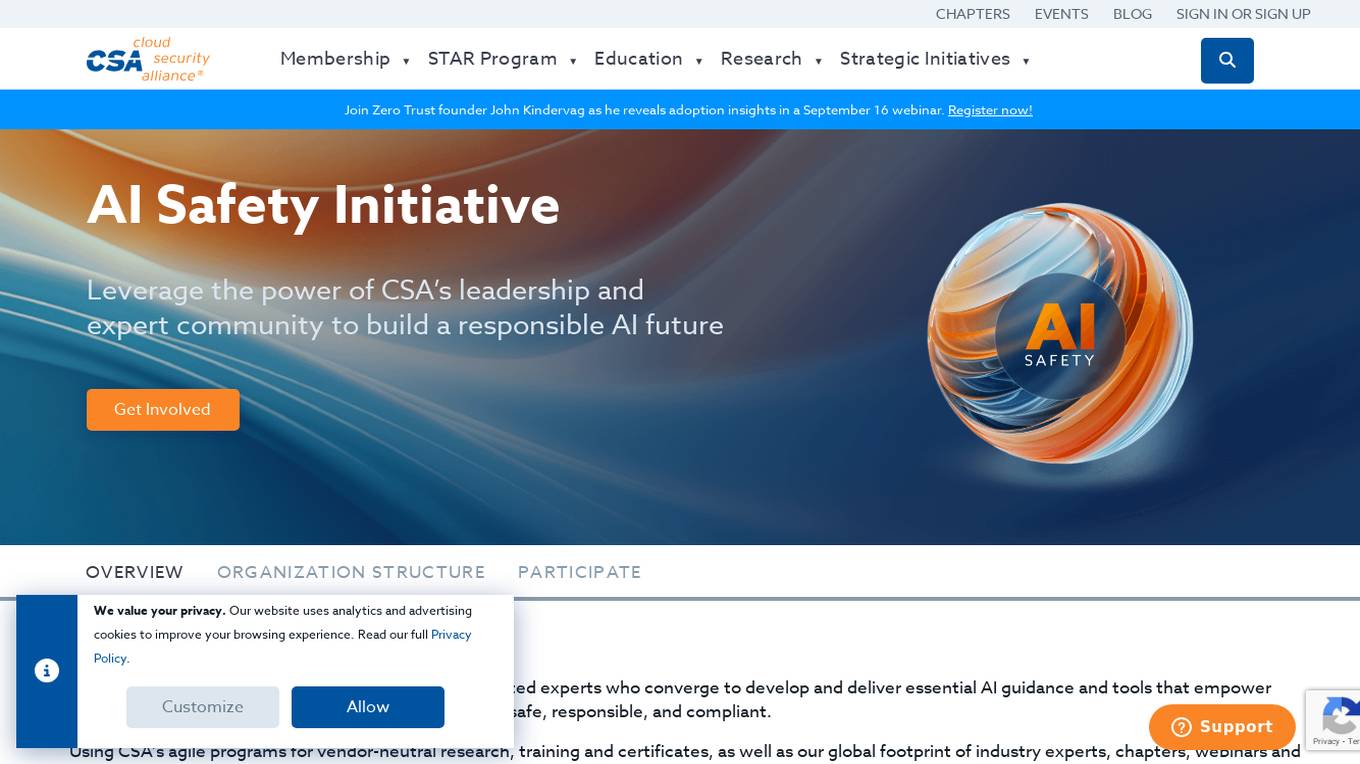
AI Safety Initiative
The AI Safety Initiative is a premier coalition of trusted experts that aims to develop and deliver essential AI guidance and tools for organizations to deploy safe, responsible, and compliant AI solutions. Through vendor-neutral research, training programs, and global industry experts, the initiative provides authoritative AI best practices and tools. It offers certifications, training, and resources to help organizations navigate the complexities of AI governance, compliance, and security. The initiative focuses on AI technology, risk, governance, compliance, controls, and organizational responsibilities.

AIM Research
AIM Research is a leading platform providing insights and analysis on the Artificial Intelligence industry. The website offers a comprehensive range of resources, including research reports, event coverage, news articles, and expert opinions. AIM Research focuses on highlighting the latest trends, innovations, and key players in the AI sector, catering to professionals, researchers, and enthusiasts seeking in-depth knowledge and understanding of AI technologies and applications.

Activeloop
Activeloop is an AI tool that offers Deep Lake, a database for AI solutions across various industries such as agriculture, audio processing, autonomous vehicles, robotics, biomedical and healthcare, generative AI, multimedia, safety, and security. The platform provides features like fast AI search, faster data preparation, serverless DB for code assistant, and more. Activeloop aims to streamline data processing and enhance AI development for businesses and researchers.

The AI Conference 2024
The AI Conference 2024 is a groundbreaking vendor-neutral event that brings together researchers, engineers, and entrepreneurs to learn, collaborate, and network with some of the brightest minds in AI. The conference explores cutting-edge technologies, practical applications, and strategic insights in the field of artificial intelligence. Attendees can expect thought-provoking sessions, captivating talks, and valuable networking opportunities, all aimed at shaping the future of AI.
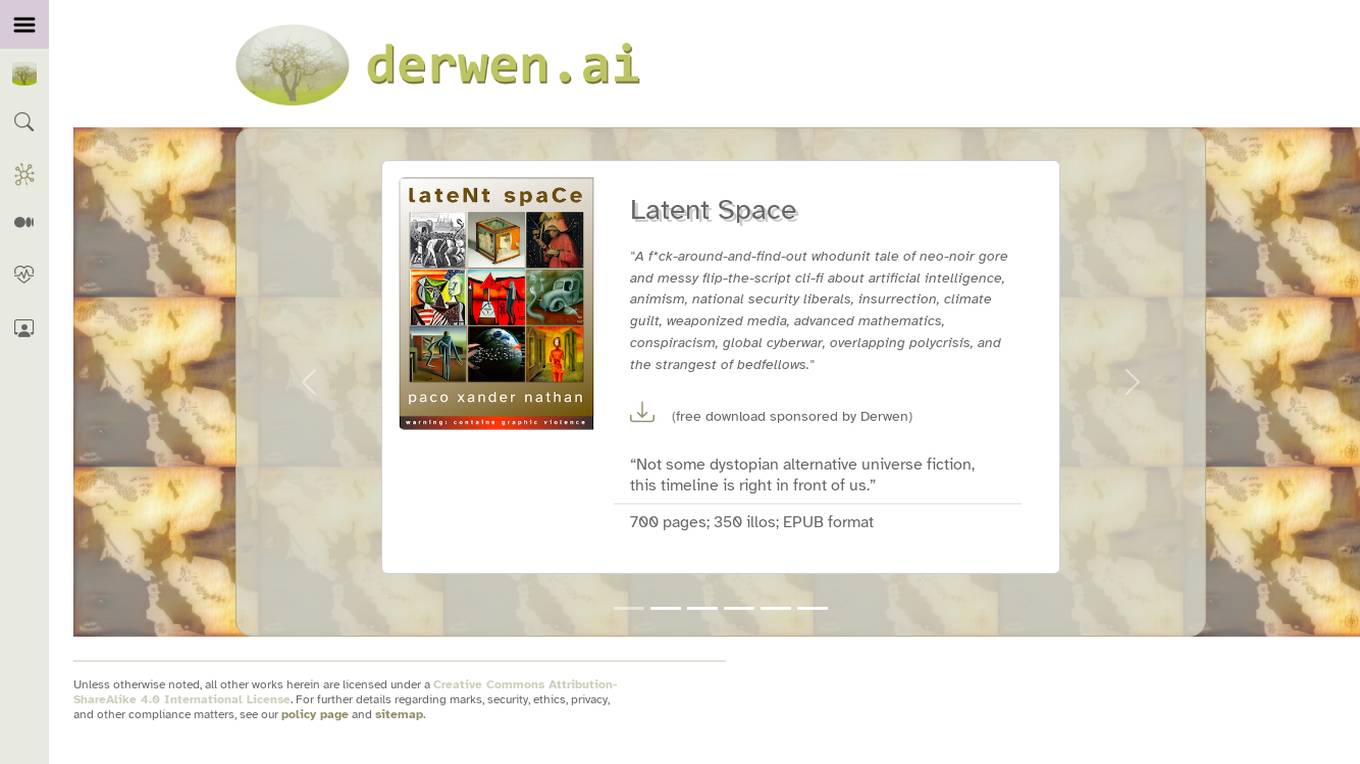
Derwen
Derwen is an open-source integration platform for production machine learning in enterprise, specializing in natural language processing, graph technologies, and decision support. It offers expertise in developing knowledge graph applications and domain-specific authoring. Derwen collaborates closely with Hugging Face and provides strong data privacy guarantees, low carbon footprint, and no cloud vendor involvement. The platform aims to empower AI engineers and domain experts with quality, time-to-value, and ownership since 2017.
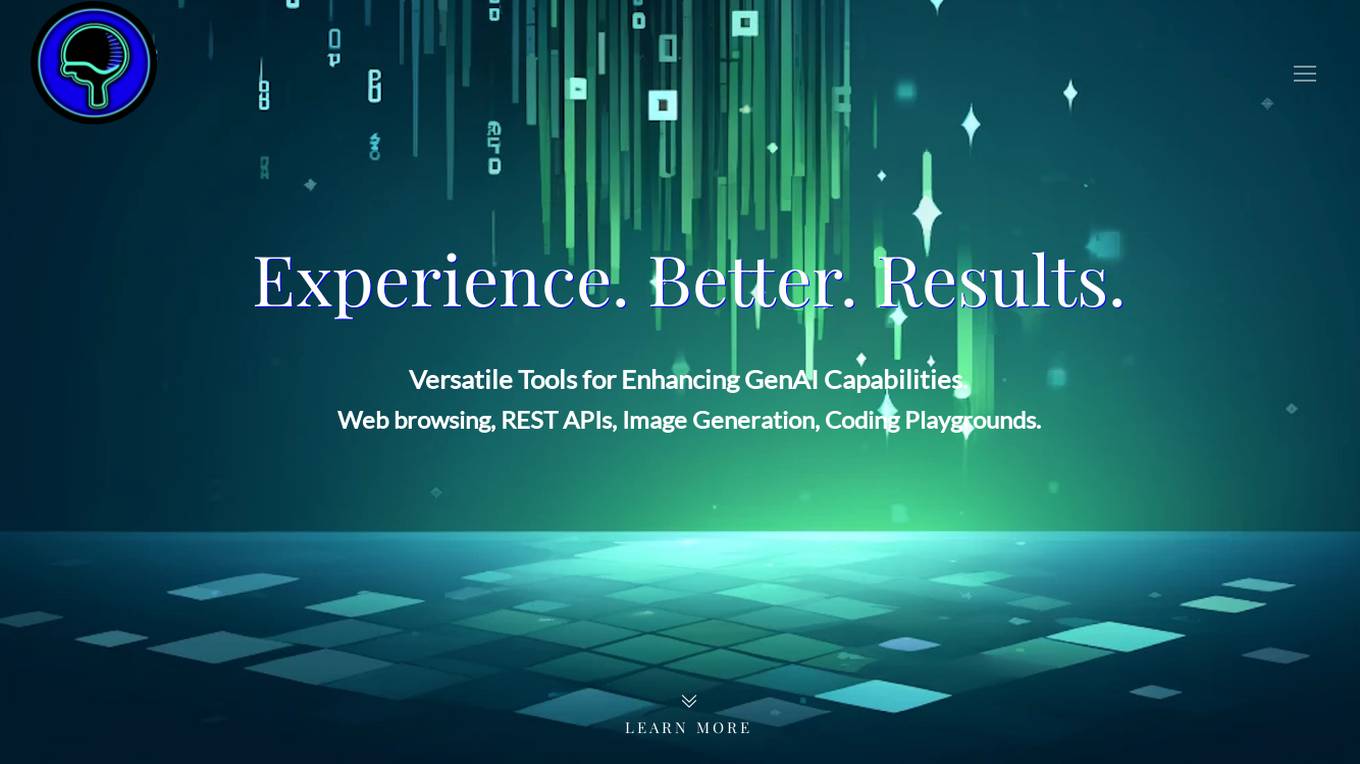
WeGPT.ai
WeGPT.ai is an AI tool that focuses on enhancing Generative AI capabilities through Retrieval Augmented Generation (RAG). It provides versatile tools for web browsing, REST APIs, image generation, and coding playgrounds. The platform offers consumer and enterprise solutions, multi-vendor support, and access to major frontier LLMs. With a comprehensive approach, WeGPT.ai aims to deliver better results, user experience, and cost efficiency by keeping AI models up-to-date with the latest data.

Google Research
Google Research is a leading research organization focusing on advancing science and artificial intelligence. They conduct research in various domains such as AI/ML foundations, responsible human-centric technology, science & societal impact, computing paradigms, and algorithms & optimization. Google Research aims to create an environment for diverse research across different time scales and levels of risk, driving advancements in computer science through fundamental and applied research. They publish hundreds of research papers annually, collaborate with the academic community, and work on projects that impact technology used by billions of people worldwide.

Google Research
Google Research is a team of scientists and engineers working on a wide range of topics in computer science, including artificial intelligence, machine learning, and quantum computing. Our mission is to advance the state of the art in these fields and to develop new technologies that can benefit society. We publish hundreds of research papers each year and collaborate with researchers from around the world. Our work has led to the development of many new products and services, including Google Search, Google Translate, and Google Maps.
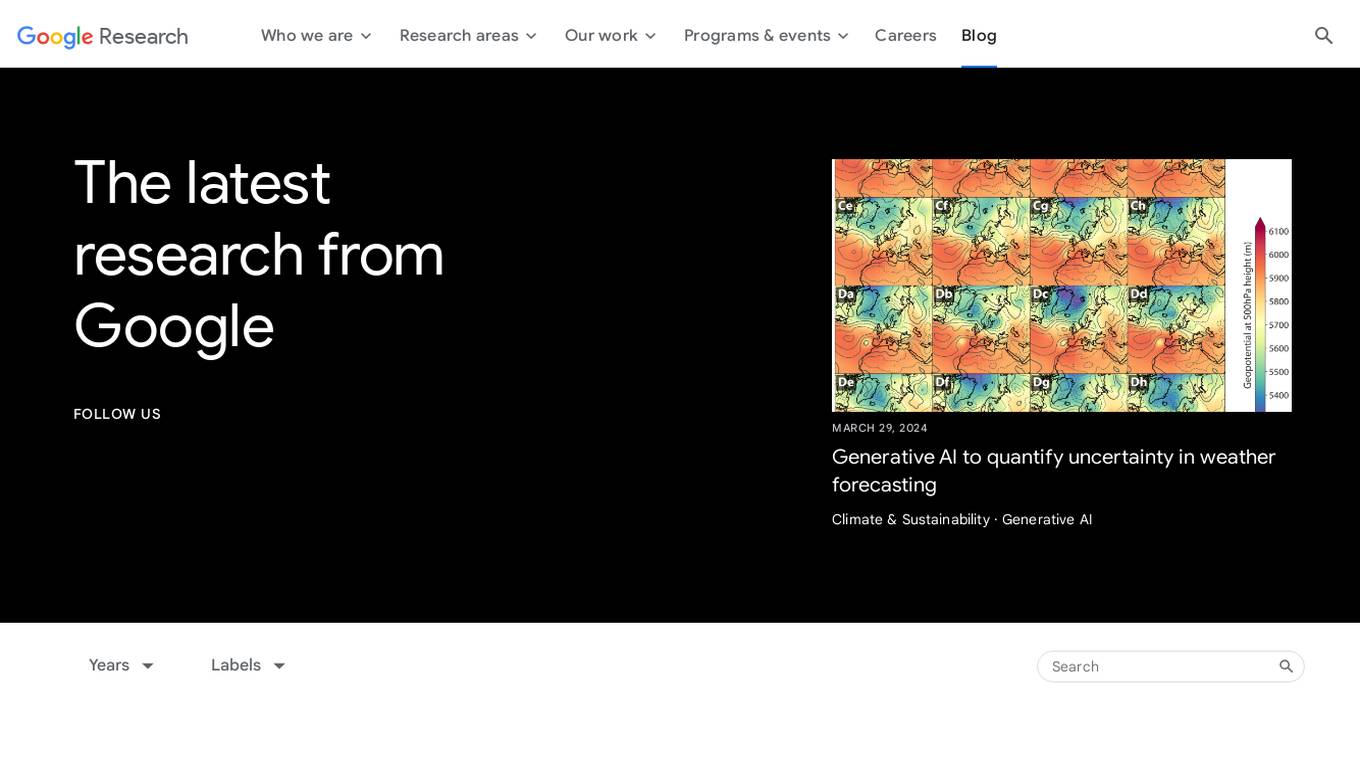
Google Research Blog
The Google Research Blog is a platform for researchers at Google to share their latest work in artificial intelligence, machine learning, and other related fields. The blog covers a wide range of topics, from theoretical research to practical applications. The goal of the blog is to provide a forum for researchers to share their ideas and findings, and to foster collaboration between researchers at Google and around the world.
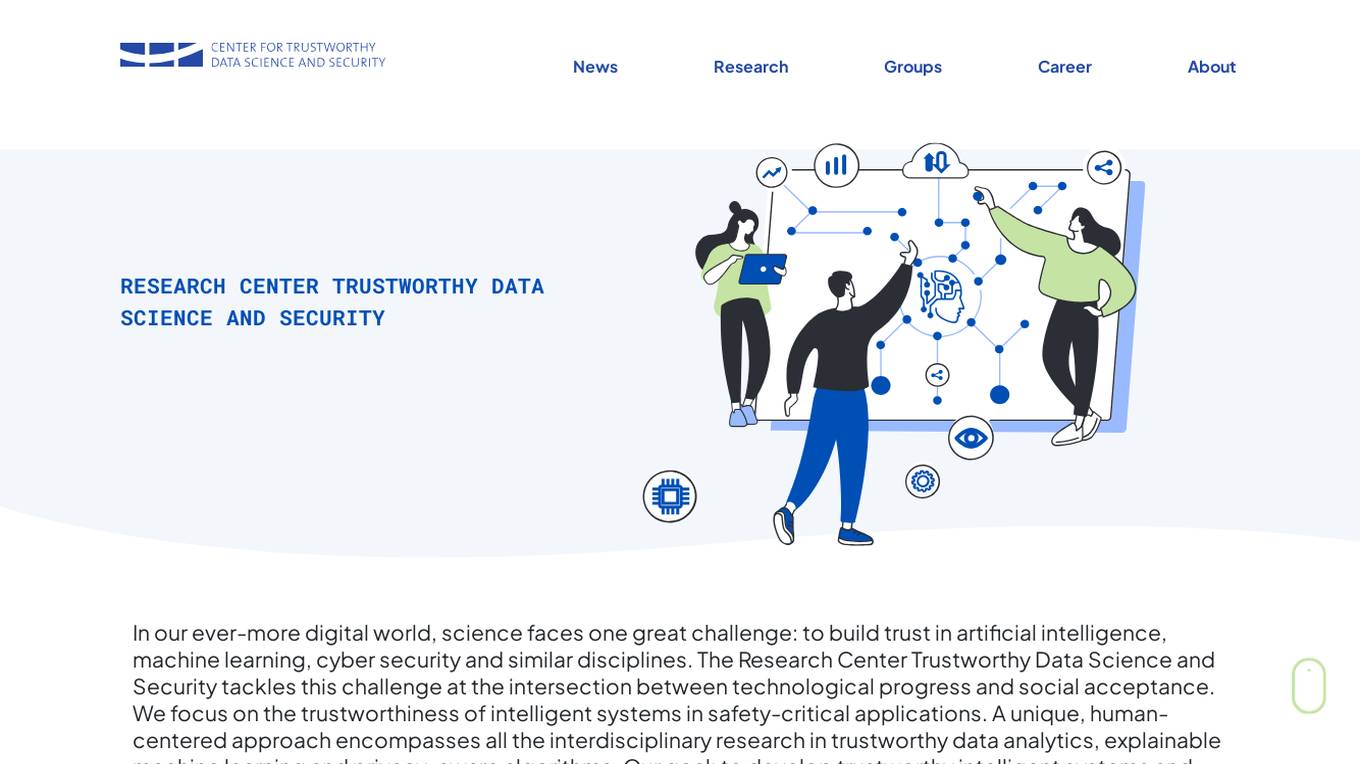
Research Center Trustworthy Data Science and Security
The Research Center Trustworthy Data Science and Security is a hub for interdisciplinary research focusing on building trust in artificial intelligence, machine learning, and cyber security. The center aims to develop trustworthy intelligent systems through research in trustworthy data analytics, explainable machine learning, and privacy-aware algorithms. By addressing the intersection of technological progress and social acceptance, the center seeks to enable private citizens to understand and trust technology in safety-critical applications.

Research Studio
Research Studio is a next-level UX research tool that helps you streamline your user research with AI-enhanced analysis. Whether you're a freelance UX designer, user researcher, or agency, Research Studio can help you get the insights you need to make better decisions about your products and services.
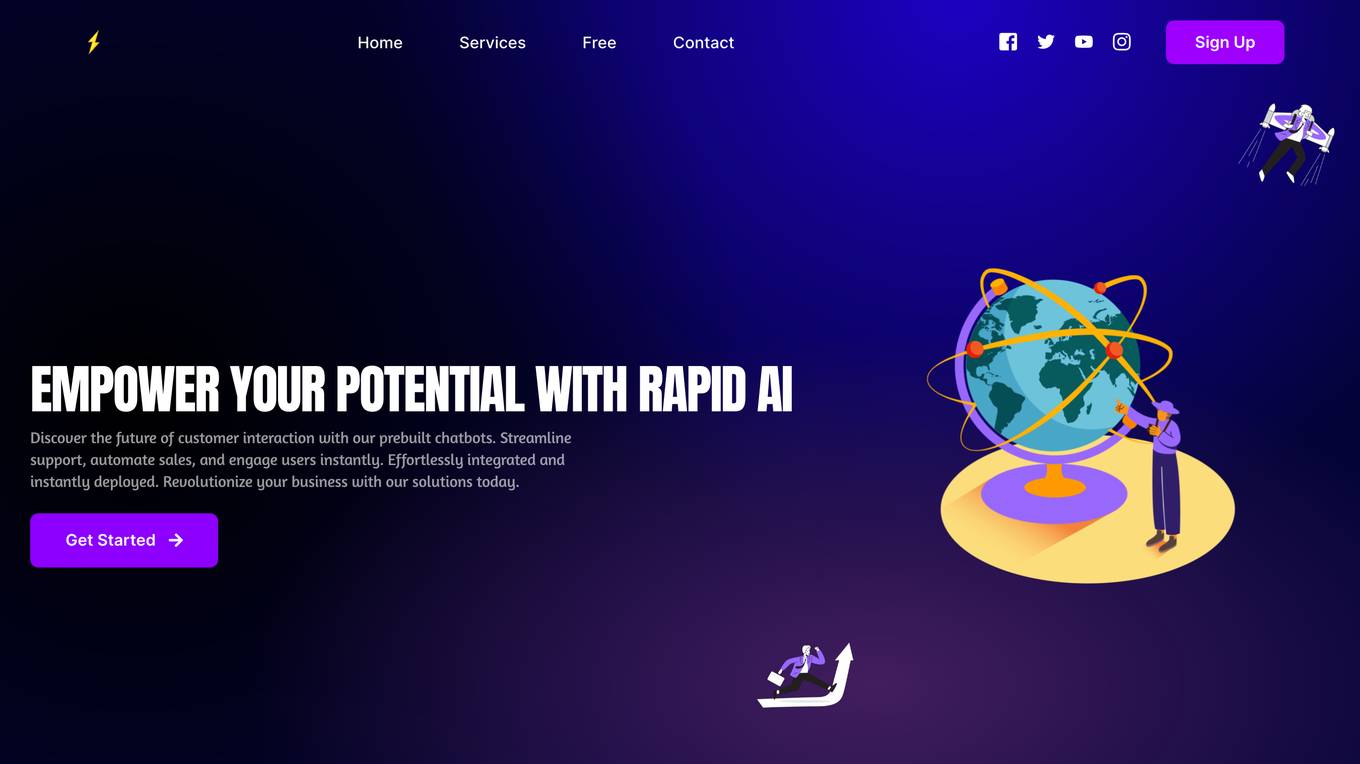
RapidAI Research Institute
RapidAI Research Institute is an academic institution under the RapidAI open-source organization, a non-enterprise academic institution. It serves as a platform for academic research and collaboration, providing opportunities for aspiring researchers to publish papers and engage in scholarly activities. The institute offers mentorship programs and benefits for members, including access to resources such as internet connectivity, GPU configurations, and storage space. The management team consists of esteemed professionals in the field, ensuring a conducive environment for academic growth and development.
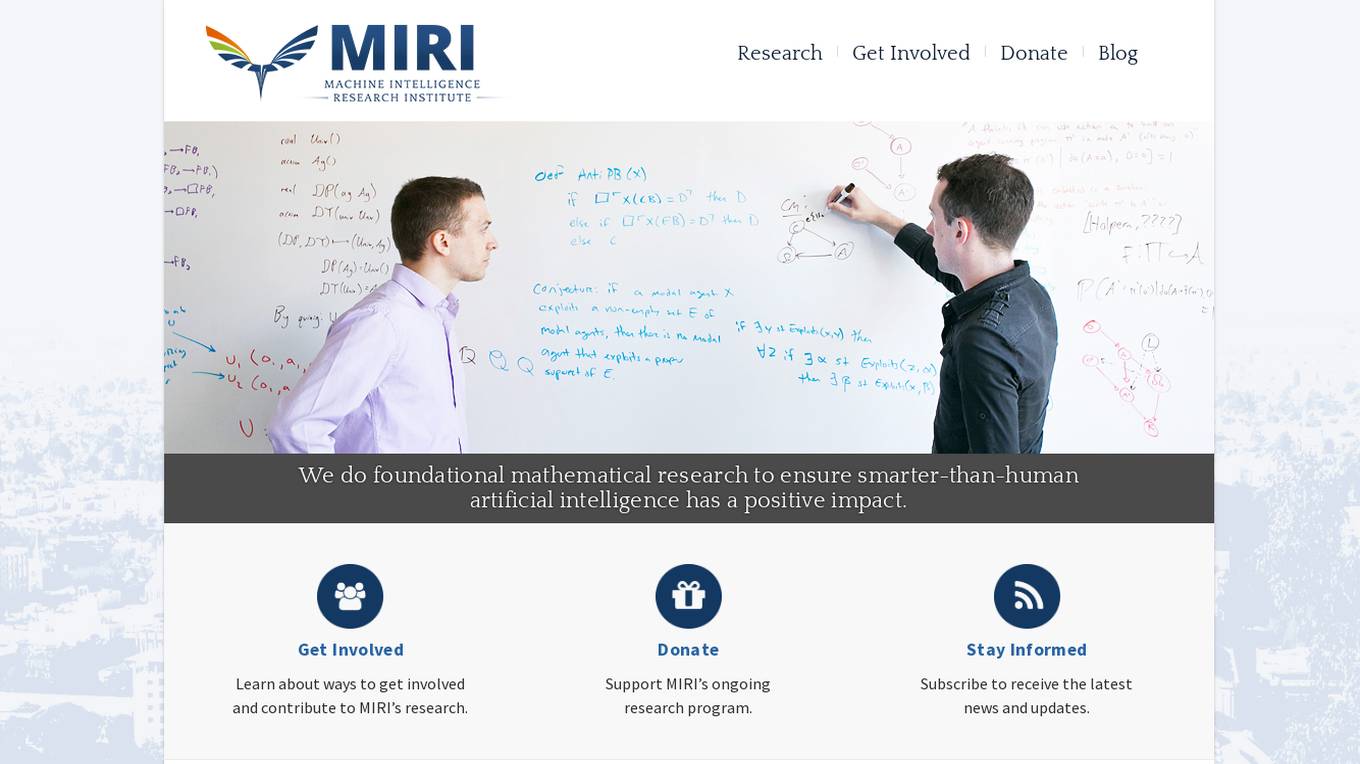
MIRI (Machine Intelligence Research Institute)
MIRI (Machine Intelligence Research Institute) is a non-profit research organization dedicated to ensuring that artificial intelligence has a positive impact on humanity. MIRI conducts foundational mathematical research on topics such as decision theory, game theory, and reinforcement learning, with the goal of developing new insights into how to build safe and beneficial AI systems.
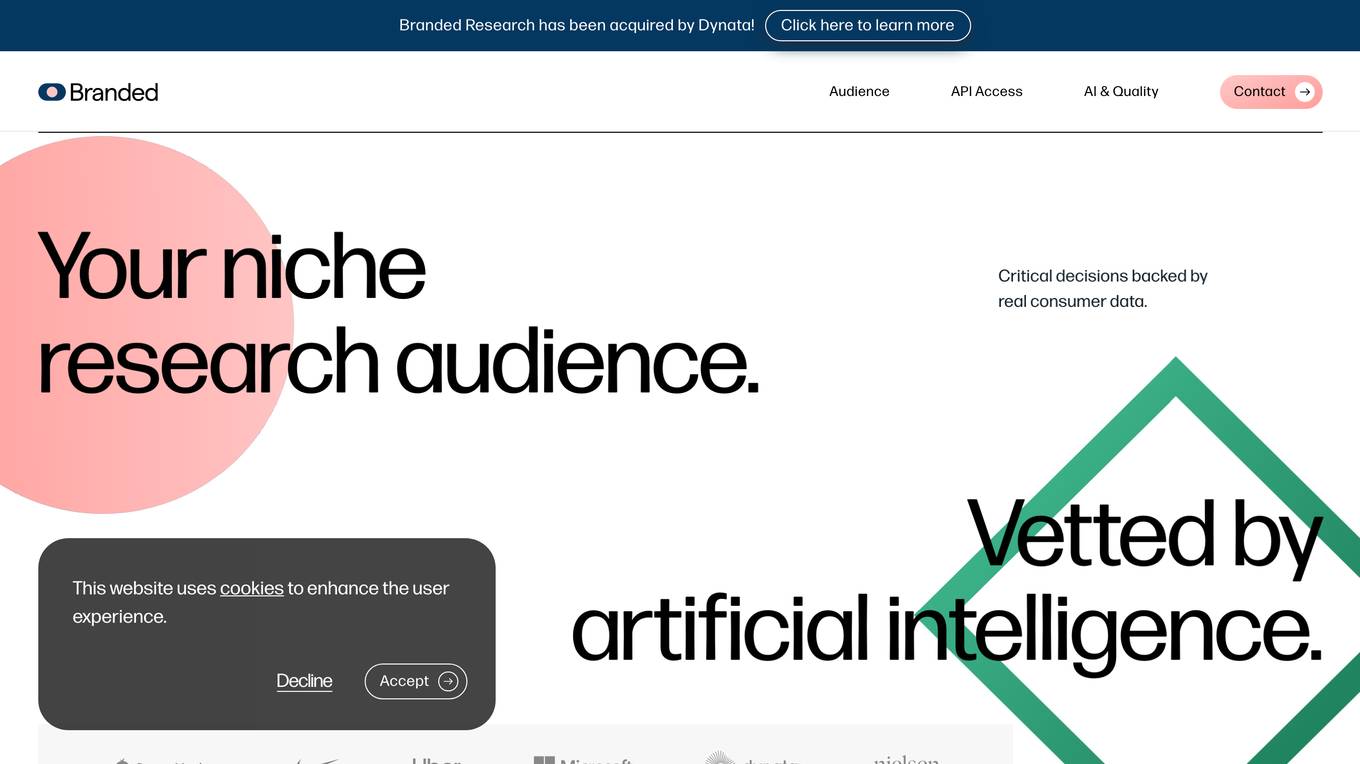
Branded Research
Branded Research, acquired by Dynata, provides access to AI-verified audience insights. It offers a range of research methods, including surveys, webcam studies, and emotional AI. With its advanced algorithms and extensive profiling, Branded helps businesses connect with their target audience and gain valuable insights to drive innovation. The company serves various industries, including tech, consumer goods, healthcare, and research agencies.
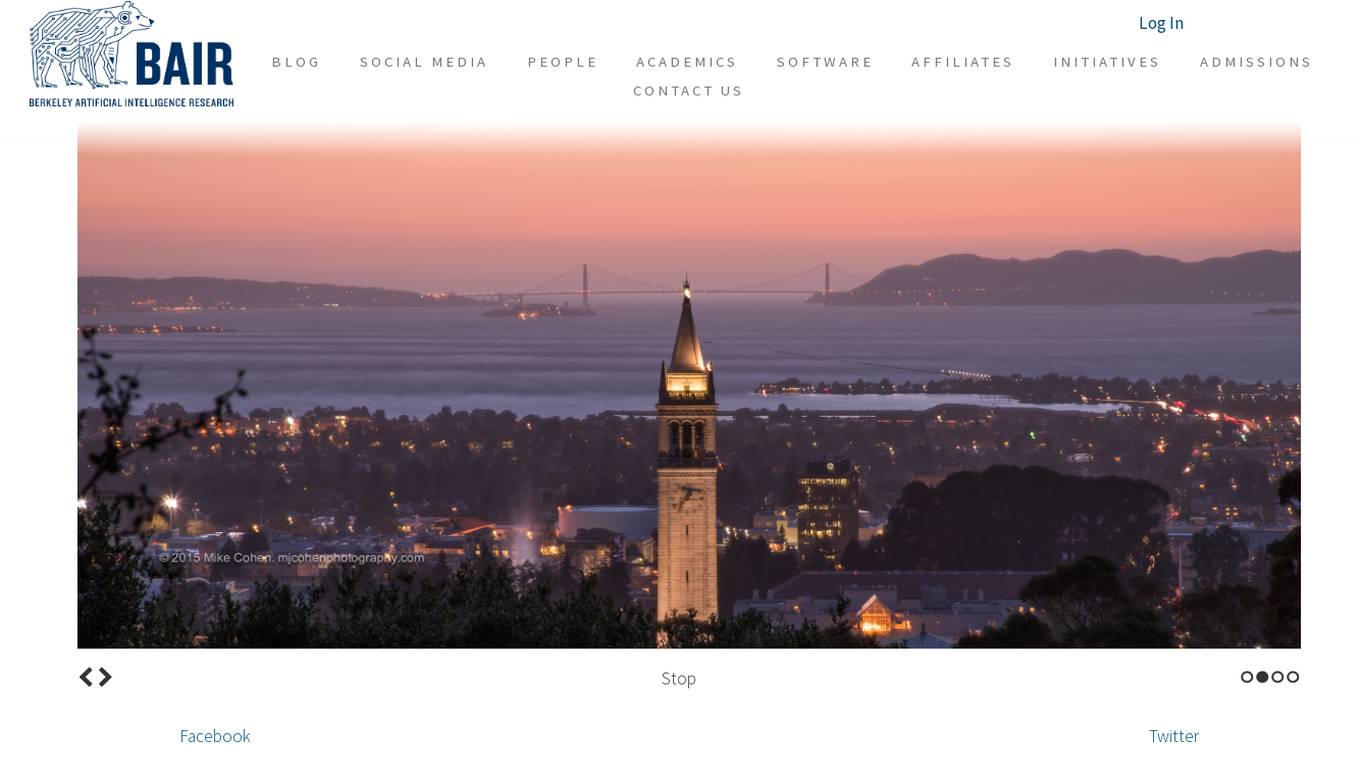
Berkeley Artificial Intelligence Research (BAIR) Lab
The Berkeley Artificial Intelligence Research (BAIR) Lab is a renowned research lab at UC Berkeley focusing on computer vision, machine learning, natural language processing, planning, control, and robotics. With over 50 faculty members and 300 graduate students, BAIR conducts research on fundamental advances in AI and interdisciplinary themes like multi-modal deep learning and human-compatible AI.
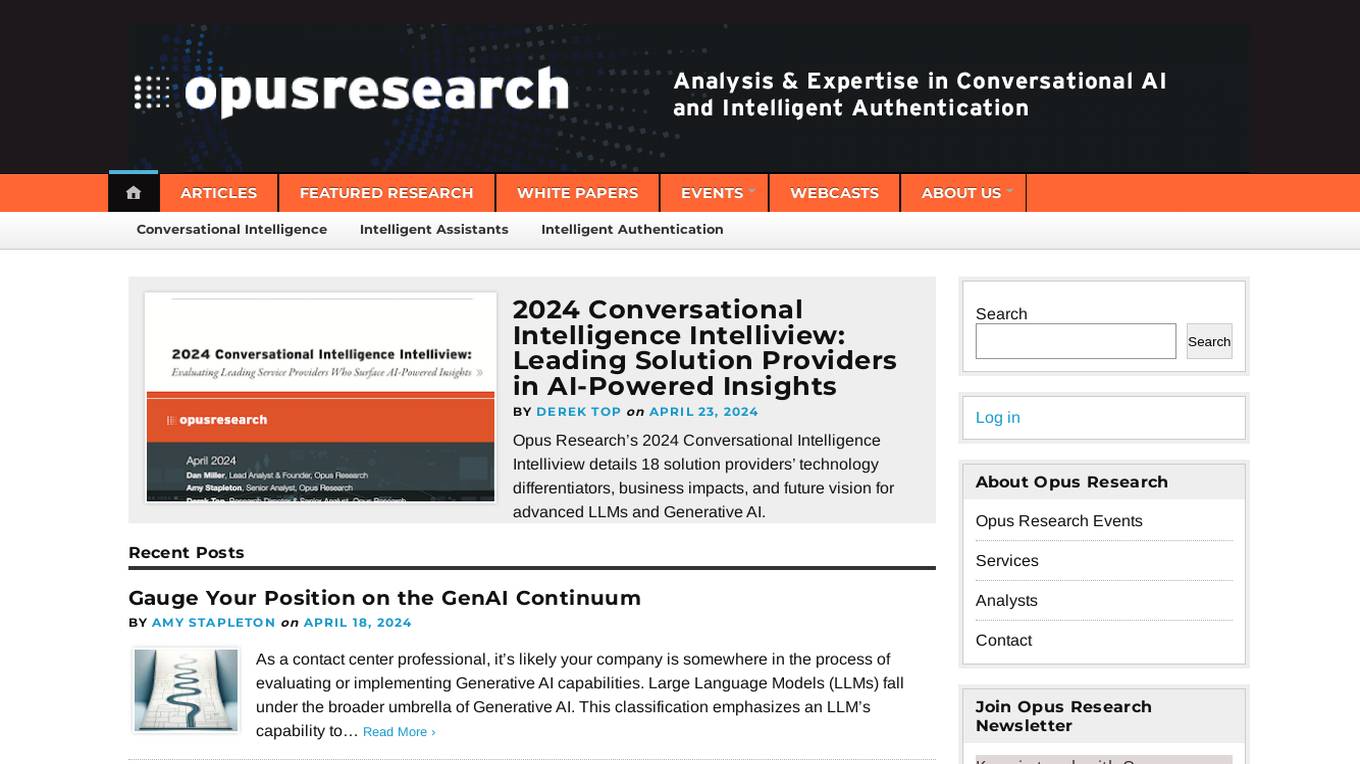
Opus Research
Opus Research is a leading provider of market research, consulting, and advisory services to the global digital communications and collaboration sectors. The company's research focuses on the convergence of emerging technologies, including artificial intelligence (AI), machine learning (ML), and natural language processing (NLP), with the communications and collaboration industries.
0 - Open Source AI Tools
20 - OpenAI Gpts

Wholesale Fashion Hub
Connects with elite vendors, offers balanced product info and fashion insights.
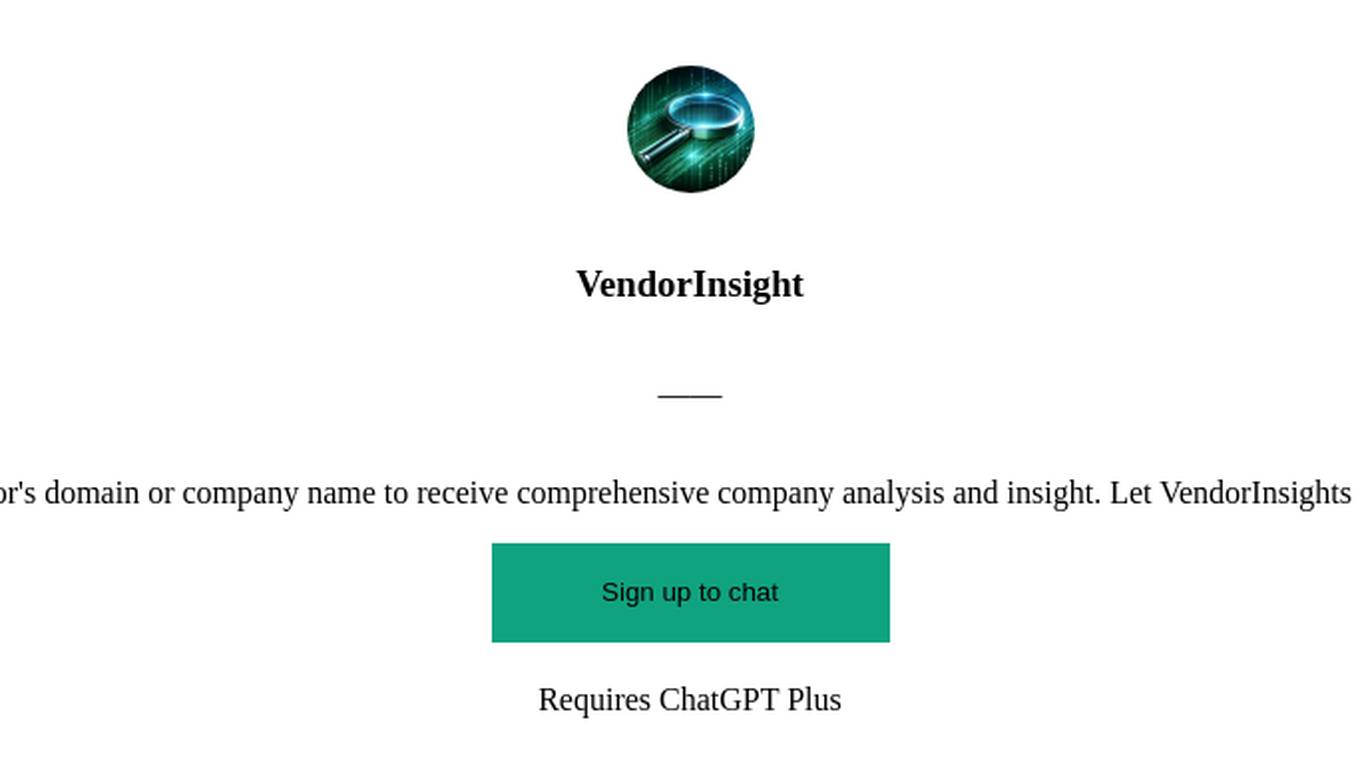
VendorInsight
Enter a software vendor's domain or company name to receive comprehensive company analysis and insight. Let VendorInsights bootstrap your research.
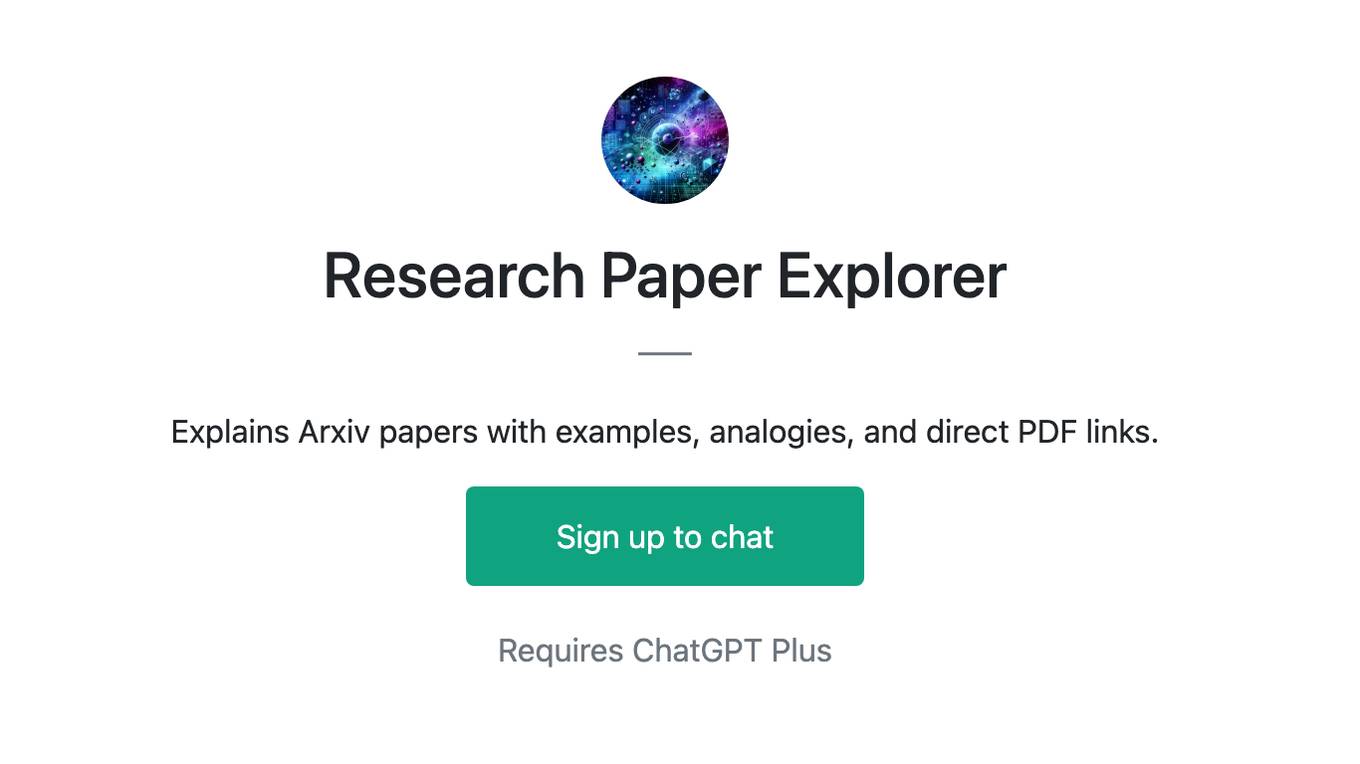
Research Paper Explorer
Explains Arxiv papers with examples, analogies, and direct PDF links.
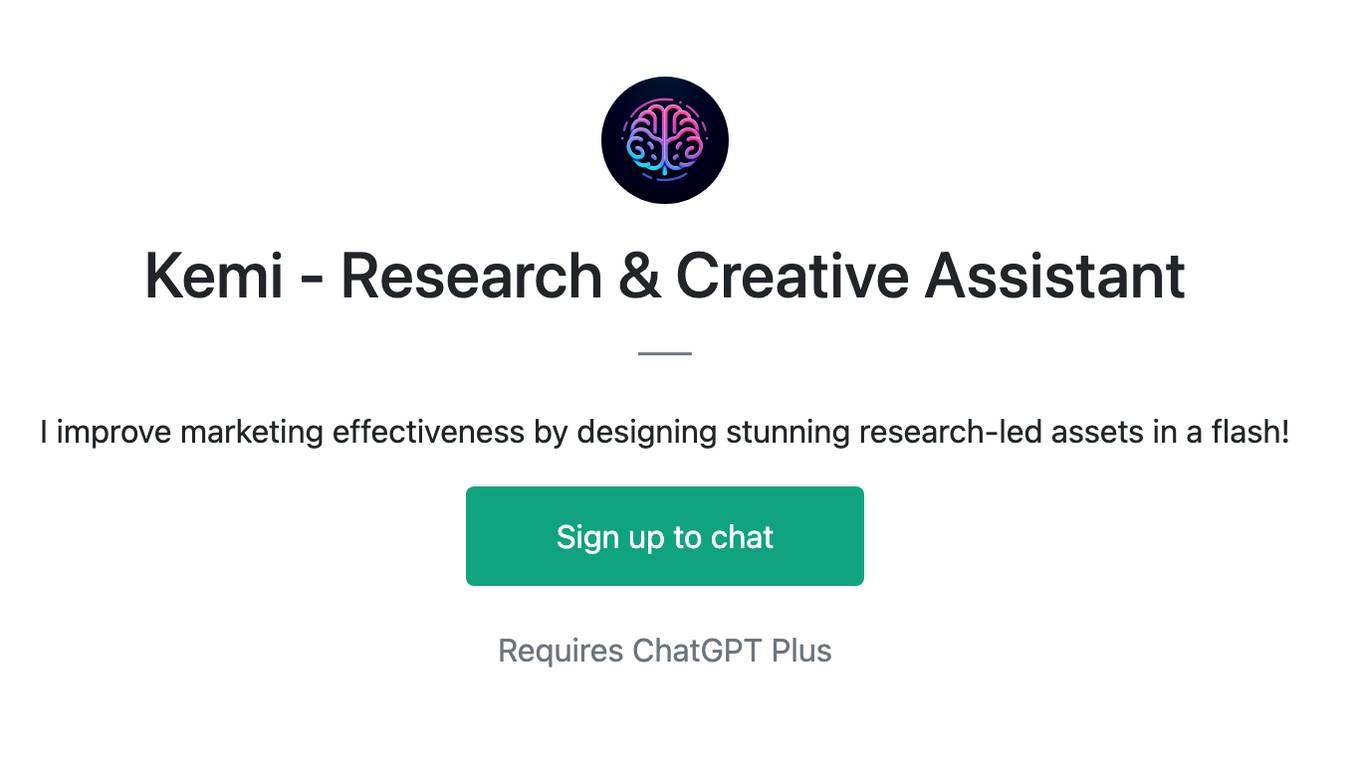
Kemi - Research & Creative Assistant
I improve marketing effectiveness by designing stunning research-led assets in a flash!
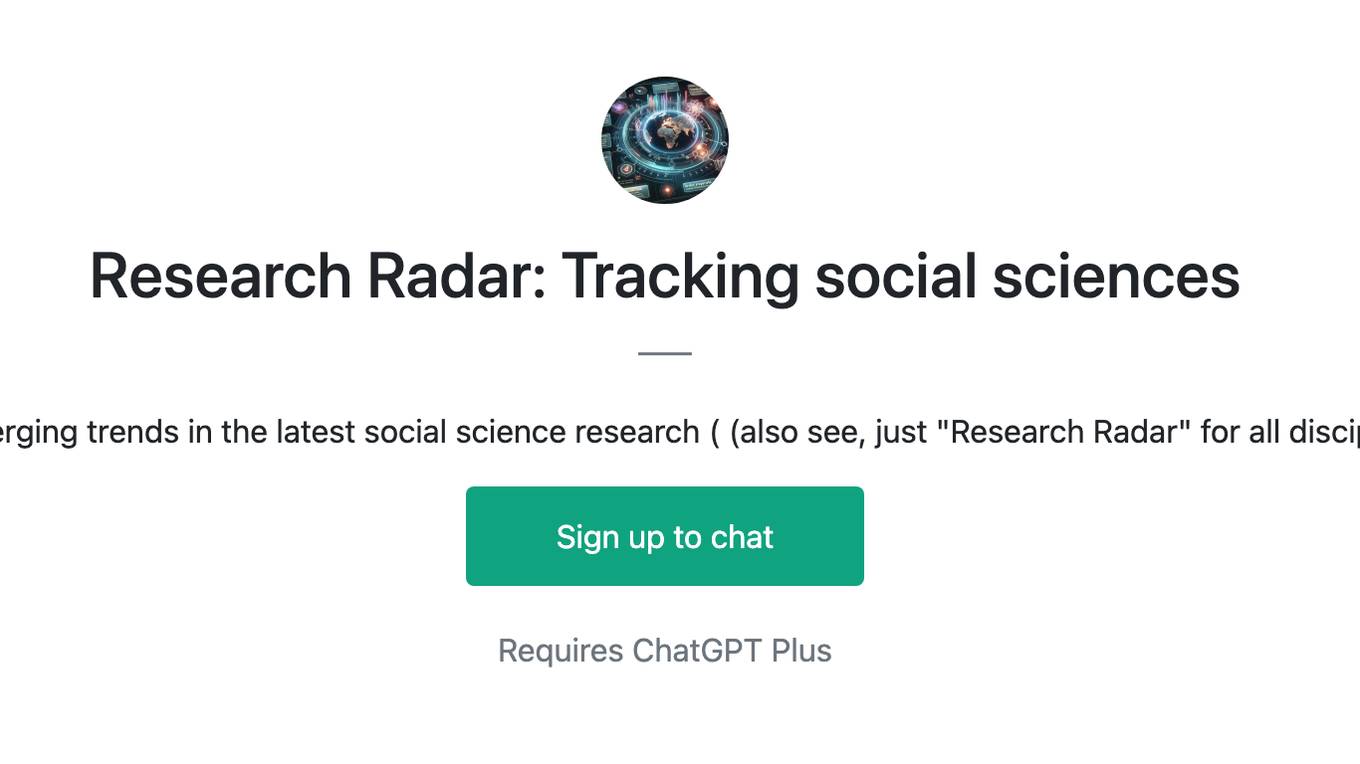
Research Radar: Tracking social sciences
Spot emerging trends in the latest social science research ( (also see, just "Research Radar" for all disciplines))
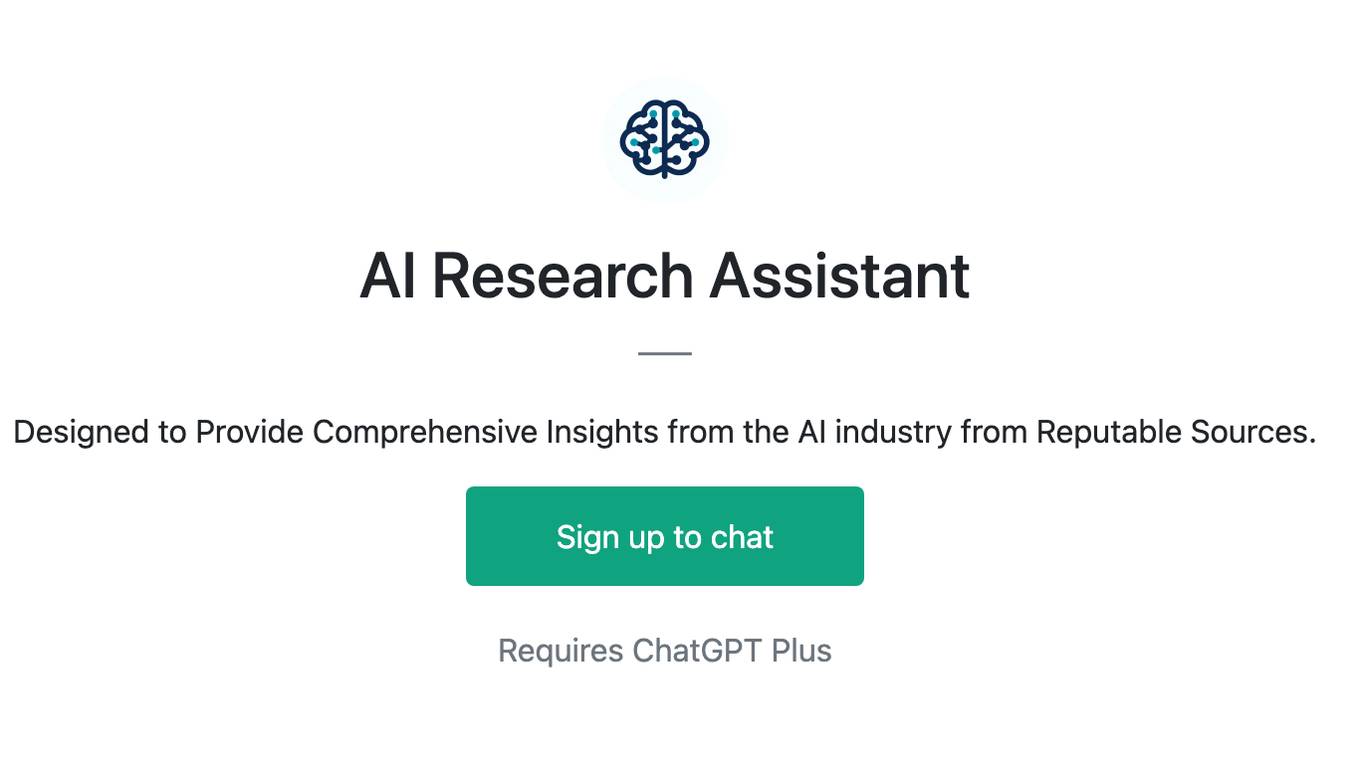
AI Research Assistant
Designed to Provide Comprehensive Insights from the AI industry from Reputable Sources.
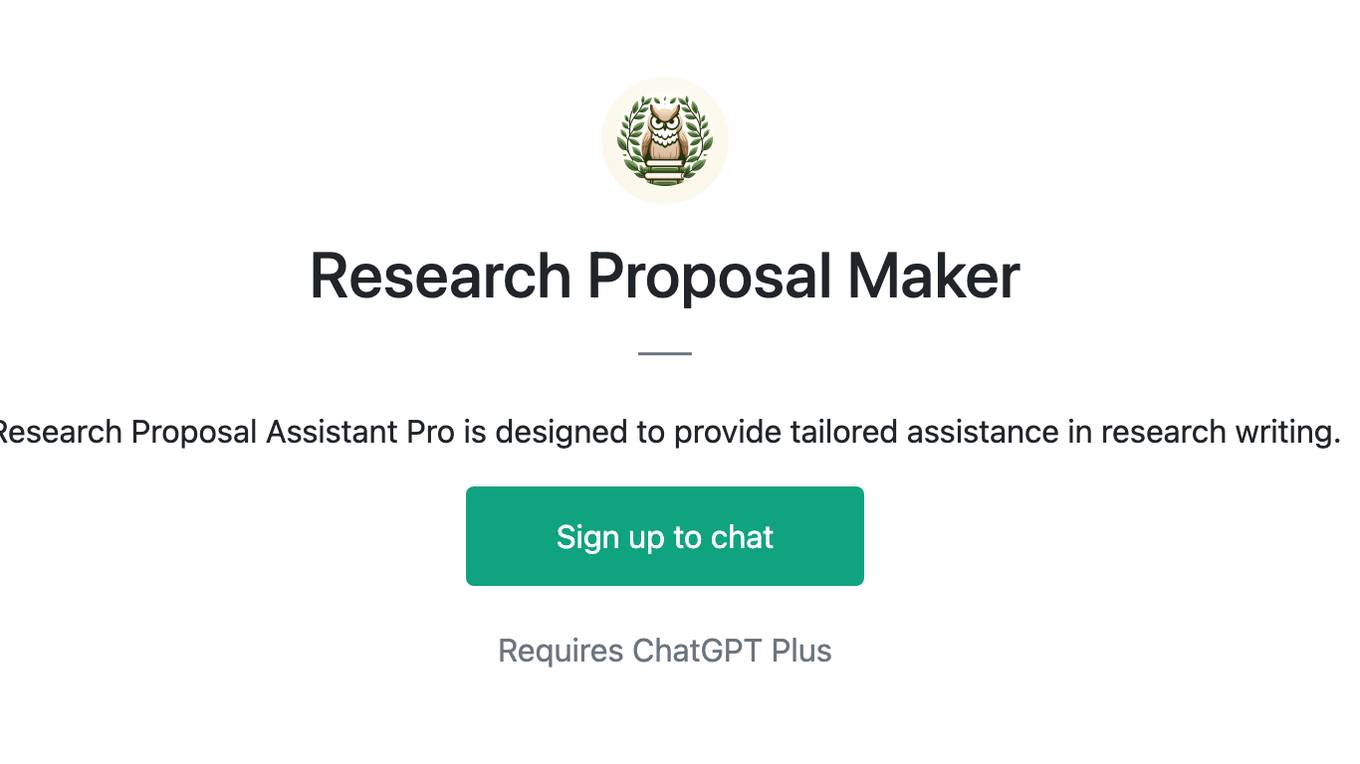
Research Proposal Maker
Research Proposal Assistant Pro is designed to provide tailored assistance in research writing.
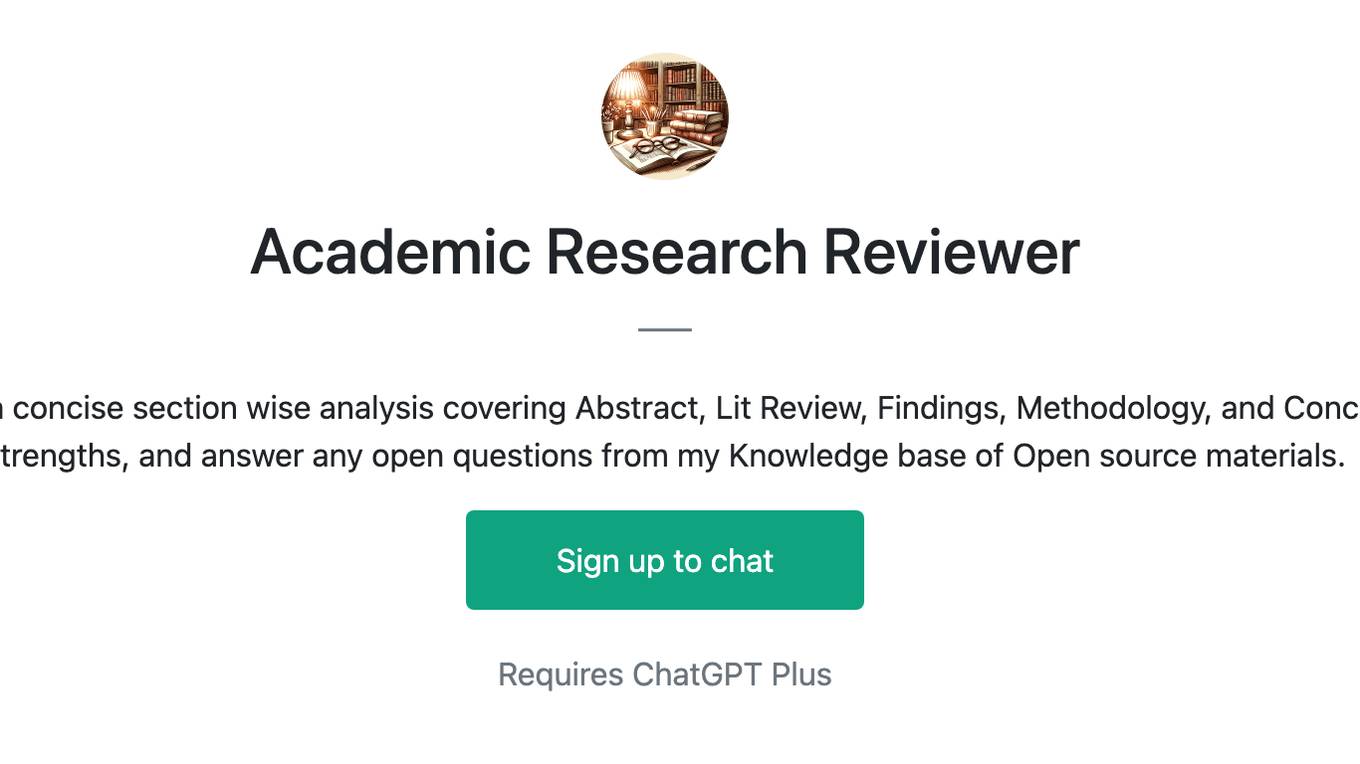
Academic Research Reviewer
Upon uploading a research paper, I provide a concise section wise analysis covering Abstract, Lit Review, Findings, Methodology, and Conclusion. I also critique the work, highlight its strengths, and answer any open questions from my Knowledge base of Open source materials.
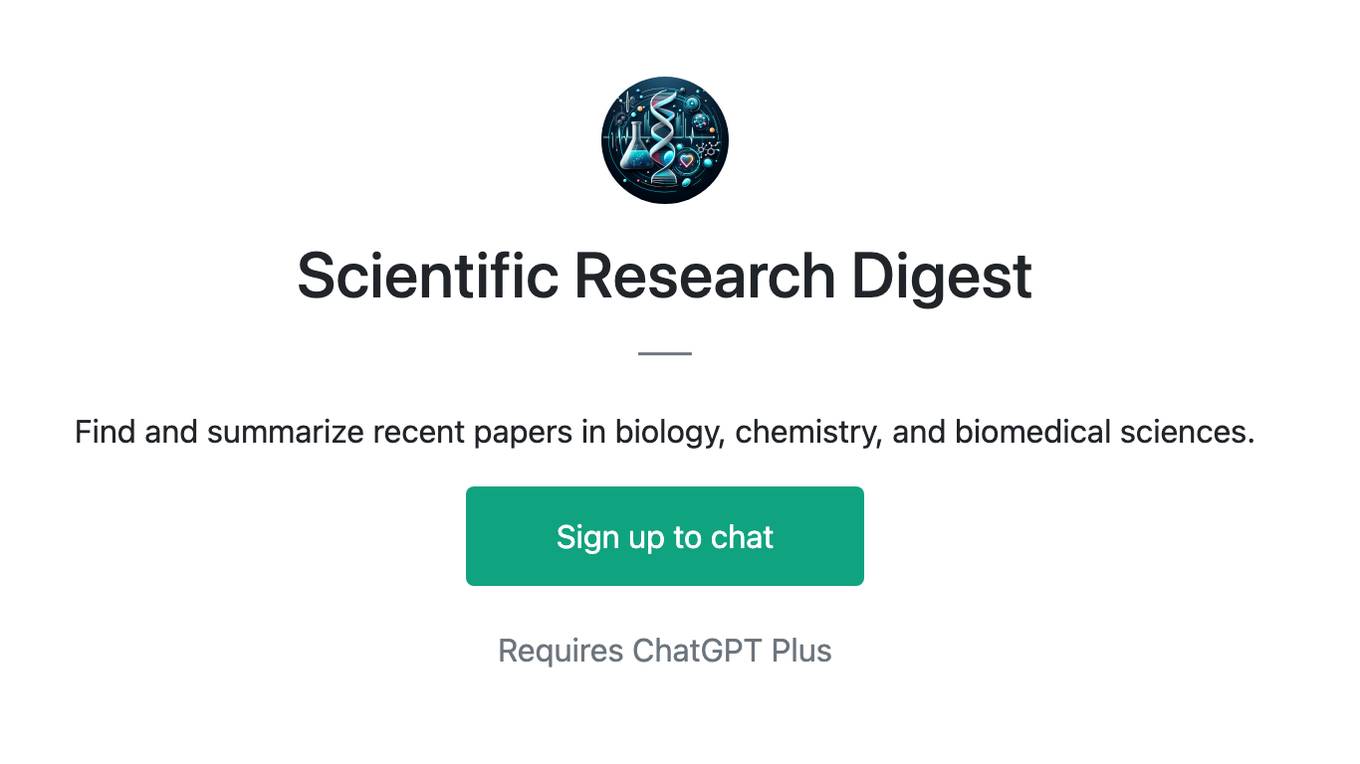
Scientific Research Digest
Find and summarize recent papers in biology, chemistry, and biomedical sciences.
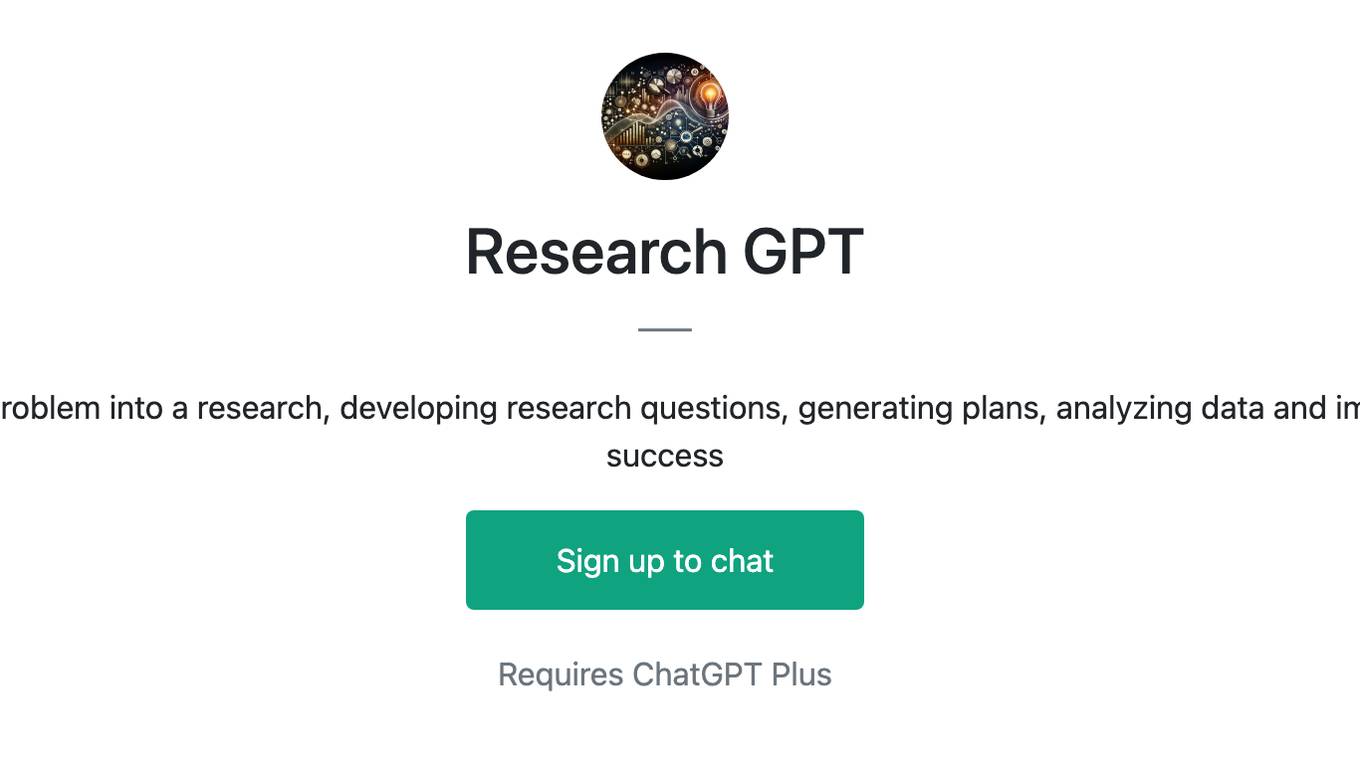
Research GPT
Your AI research assistant, for turning a problem into a research, developing research questions, generating plans, analyzing data and improving research workflows for project success
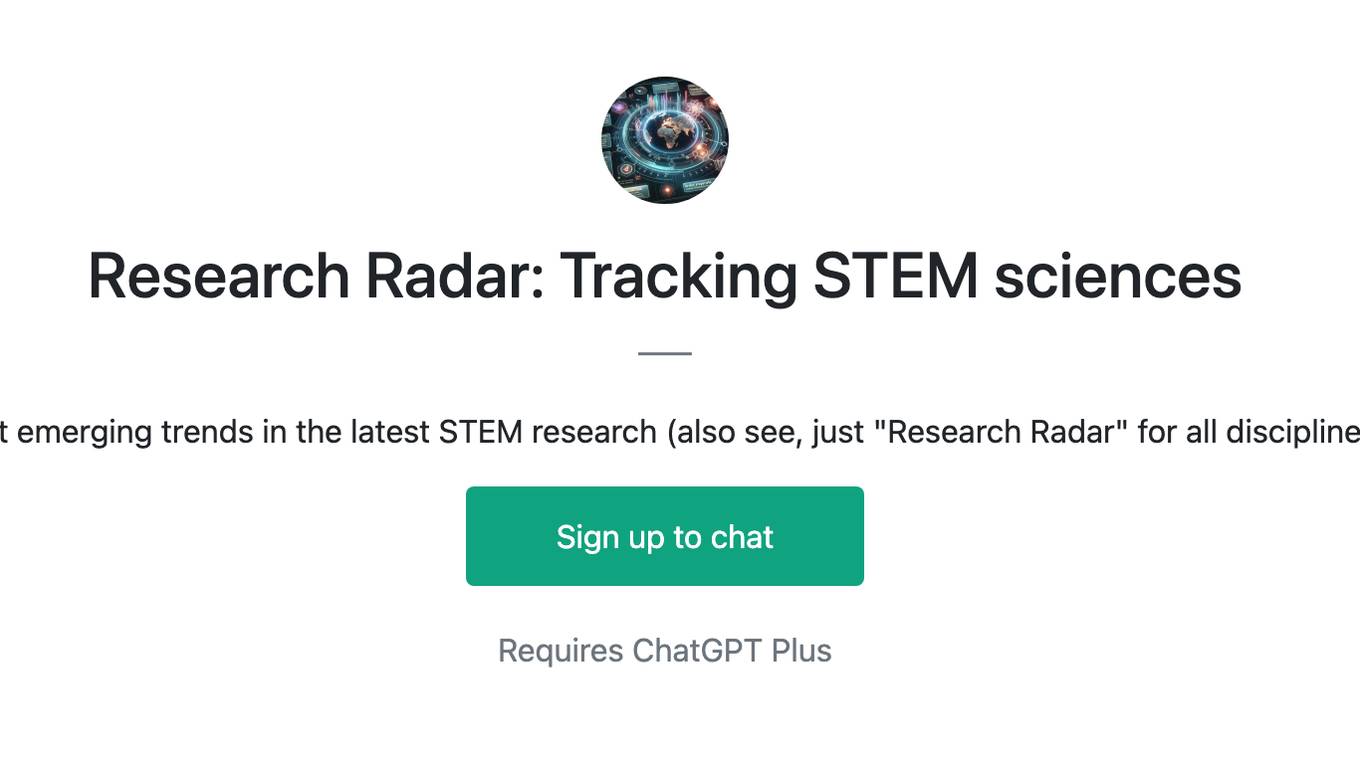
Research Radar: Tracking STEM sciences
Spot emerging trends in the latest STEM research (also see, just "Research Radar" for all disciplines)

